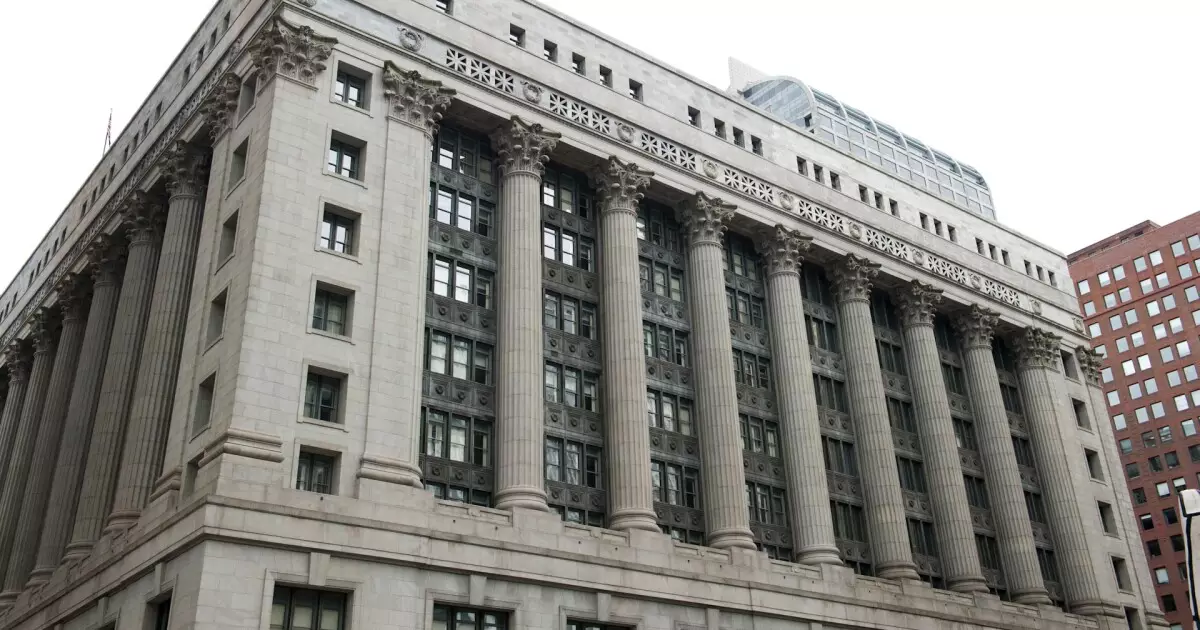The recent response by the Chicago City Council to Mayor Brandon Johnson’s proposed fiscal budget for 2025 reflects the complexities and challenges that local governments face in managing finances amid political tensions. Rejecting a proposed $300 million property tax increase aimed at addressing a staggering budget deficit of approximately $982 million, the Council demonstrated a significant ideological rift with the administration. This decision highlights not only the immediate financial constraints faced by the city but also raises broader questions about governance, accountability, and the sustainability of funding mechanisms.
Mayor Johnson’s initiative to impose a property tax hike has drawn intense scrutiny. The City Council’s swift and unanimous vote against this proposal suggests a collective unwillingness to burden constituents with additional taxes, especially given the backdrop of rising living costs. Critics argue that Johnson’s shift in stance from previously promising not to increase property taxes raises concerns about his political capital. Indeed, the atmosphere in city politics seems fraught with tension, as the Council must confront budgetary realities while appeasing constituents reluctant to accept higher taxes.
Howard Cure, director of municipal bond research at Evercore Wealth Management, underscored the misguided focus on property taxes when there are numerous financial issues at stake. He pointed out that while the property tax may represent a stable revenue stream, it is the rising fixed costs, mainly due to pension obligations, that pose a more significant risk to the city’s financial health. The long-term consequences of ignoring these fundamental issues could jeopardize Chicago’s bond ratings and, ultimately, its fiscal stability.
The recent action by Kroll Bond Rating Agency (KBRA) to place Chicago’s general obligation bond rating on “Watch Downgrade” amplifies the need for a prudent approach to budget management. The agency’s focus on the city’s shift toward solving its budget crisis through temporary, one-time fixes rather than sustainable solutions illuminates a crisis of governance. With only 80% of Johnson’s budget demonstrating structural fixes, the reliance on economically sensitive revenue raises alarm bells for future fiscal stability.
Such ratings play an integral role in shaping the city’s economic landscape. A downgrade could lead to higher borrowing costs, making it more expensive for Chicago to finance essential services and projects. These repercussions are hardly trivial; they could impact public services that residents depend upon, from firefighting to public health initiatives. The decisions made in the coming months will not only influence financial markets but will reverberate through every layer of city governance.
In light of the City Council’s rejection of the tax hike, it is crucial for both the administration and the Council to explore diverse revenue-generation strategies beyond mere property taxes. The Civic Federation of Chicago has proposed a comprehensive list of alternatives, ranging from a citywide income tax to taxing financial transactions, which reflect a growing recognition that traditional revenue streams may no longer be adequate. Particularly, the suggestions necessitate collaboration with state lawmakers, highlighting the interconnectedness of municipalities and state governance in crafting a durable fiscal framework.
Short-term revenue fixes are equally necessary but must be approached with caution. Measures such as raising taxes on liquor sales or rideshares can provide immediate relief but could also deter economic activity and stifle growth in these sectors. Likewise, staffing cuts within crucial city services raise ethical and operational questions about the quality of life in Chicago.
Chicago’s struggles cannot be examined in isolation; they intertwine with the ongoing budgetary pressures at the state level. Illinois’ own budget deficit of $3 billion has led to mounting concern about how these challenges will affect cities reliant on state support. The fear that the state might mitigate its financial woes at the expense of cities raises significant anxieties. Political tensions between Democrats and Republicans within the state legislature only add to the uncertainty regarding future funding mechanisms for essential services.
Further complicating matters is the complex relationship between the Mayor’s office and the Chicago school board. With the city’s fiscal challenges mirrored within educational funding structures, finding collaborative solutions that serve both the city’s education systems and its fiscal requirements will be essential.
As the City Council continues to navigate the intricate dynamics of governance, the refusal to accept the property tax increase signals a broader call for innovative thinking and collaborative problem-solving. Mayor Johnson and the City Council must engage in an honest dialogue about the fiscal realities ahead and develop a cohesive plan that encompasses both immediate fiscal needs and long-term sustainability. Without a strategic approach that embraces genuine collaboration and creative revenue generation, Chicago risks facing fiscal decline at the hands of political strife and economic uncertainty. The time to act is now, as the future of this iconic city hangs in the balance.

